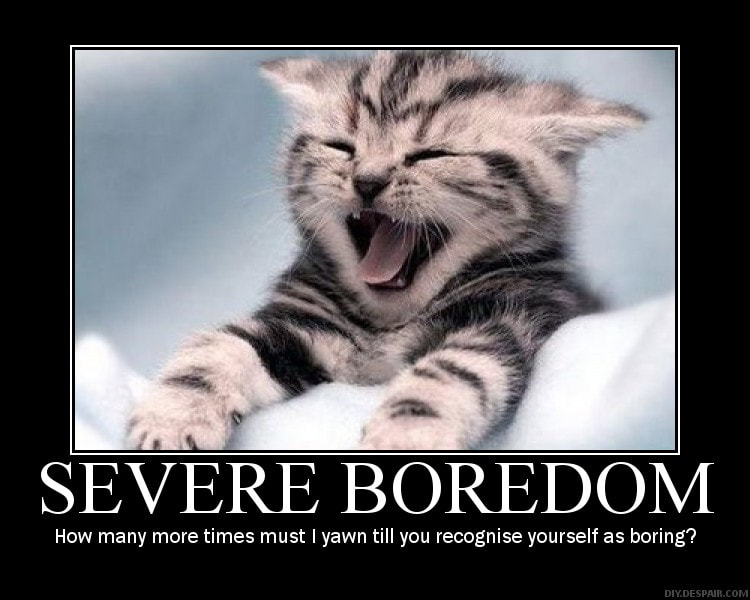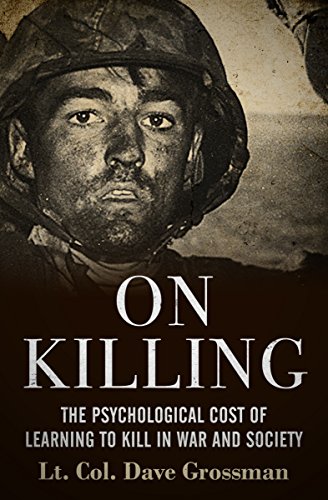|
So after being named to Kansas City Business Journal's Fast 50 list, we decided to go national, placing 2940th on the Inc. 5000 list for fastest growing private companies in the United States!
You can check out our company profile on Inc.com here as well as our company website here and our KC rental website here. Congrats team!
Comments
Here is one of my better articles I wrote for my previous blog Swifteconomics some time back that I thought I would repost:
Consider the following scenario: you are hanging out with two friends and telling a really funny story about something you did a while back. One of the friends participated in this adventure, the other did not. Just before you reach the crescendo in your story, the friend who endured this event with you interjects with an inside joke about this humorous episode. Unfortunately, since the story has yet to be completed, this leaves the other friend completely bewildered. Suddenly, the story’s momentum has been obliterated. The build-up has been interrupted. The setting, distorted. The foreshadowing, forgotten. The dramatic irony, melodramatized. And the protagonists and antagonists mixed up into an indecipherable mess of nameless, meaningless, literary characters moving across a vague landscape of disinterested, academic discussion; bringing back traumatic memories of AP Lit in high school. Memories you had previously hoped to have finally blocked out, sending them into the empty recesses of the dark corners of your mind. Alas, you have now realized it was to no avail, because said memories have returned, en masse, with a particularly scornful vengeance. And regrettably, no matter how hard you try to brush off the comment, you must delay your epic narrative to explain this inside joke, before getting back to chronicling your grand tale. Then, by the time the story finally reaches its forte, all that’s left is a modest giggle, instead of what should have been an all out belly laugh. This highlights an asymmetry of information; the inside joke was funny. It really was. But that means nothing, since the third person did not understand the situation at hand. And now for my truly inspiring, non-non sequitur of a segue: this type of thing happens in the marketplace all the time. In Steven D. Levitt and Stephen J. Dubner’s popular book Freakonomics, they discuss this very thing, when describing the similarities between Realtors and the Ku Klux Klan. That isn’t to say that Realtors are all a bunch of uber-racists, who get their jollies by dressing up as the Conehead’s version of Casper the Friendly Ghost. What they describe is how both groups, the Realtors and the Klu Klux Klan alike, rely on an asymmetry of information to maintain their place in the market; the market for housing, in the Realtor’s case, and the market for disgruntled, racist, rednecks with nothing better to do, in the Klan’s case. As Levitt and Dubner put it: “Information is a beacon, a cudgel, an olive branch, a deterrent, depending on who wields it and how. Information is so powerful that the assumption of information, even if the information does not actually exist, can have a sobering effect.” (1) The Klu Klux Klan has changed a lot over the years, but its later stages fit into this discussion very well. By the 1940’s, the Klan wasn’t particularly violent, instead it was: “…a sorry fraternity of men, most of them poorly educated and with poor prospects, who needed a place to vent – and an excuse for occasionally staying out all night. That their fraternity engaged in quasi-religious chanting and oath taking and hosanna hailing, all of it top secret, made it that much more appealing.” (2) A man named Stetson Kennedy made it his mission to discredit the Klan, and bigotry in general, and therefore decided to join and uncover its secrets. Once he accomplished this, he broadcasted those “secrets” on the radio for all to hear and “it had the precise effect he hoped: turning the Klan’s secrecy against itself, converting precious knowledge into ammunition for mockery.” (3) The asymmetries of information were what had made the Klan interesting (well, interesting to disgruntled, racist, rednecks with nothing better to do, at least). After this information became symmetrical, the Klan became what it deserved to be: a joke. As for the Realtors, they have what economists call the principle-agent problem. Namely, that they know much more about the market than you do, or at least pretend to (that talk about real estate always going up back around 2006, has surprisingly, put a bit of a chink in their credibility), so they can convince you to agree to price your home as they see fit. And unfortunately, the incentives for you and your agent, likely differ. Theirs is to get the property sold as quickly as possible; yours is to get the best price. But with the aforementioned asymmetry of information, “…you fear setting the price too low… [or] setting the price too high. It is the job of your real-estate-agent, of course, to find the golden mean.” (4) Too bad your incentives don’t align and the information is so asymmetrical. “…[A] study found that an agent keeps her own house on the market an average ten extra days, waiting for a better offer, and sells it for 3 percent more than your house.” Thus giving your Realtor “a nifty profit produced by the abuse of information and a keen understanding of incentives.” (5) The Internet has certainly helped to curtail these excesses, as consumers can use the World Wide Web for not only its primary purposes (buying useless crap on eBay, collecting an assortment of malware, and of course, pornography), but also to obtain valuable information about the benefits, and shortcomings, of various products. The Internet does have its downsides, though, as there is almost too much information which can become a bit overwhelming. In addition, unscrupulous, pimplely-faced, teenage web geeks, eating cheese puffs in their mother’s basement, can now use a host of fancy programming techniques to dupe people into buying neuro-homeopathic, weight loss defibrillators and the like. OMG, I mean IMHO the thought of those PPL ROFL after one of their scams is just like WTF you know! At least you can occasionally get lucky and receive an offer for $100,000 from an exiled Nigerian Prince, as long as you deposit a couple hundred dollars in a Swiss bank account, providing his brother the means to grant him asylum in Belarus. Regardless, shysters can still get their unfair share of the loot. Internet or not, asymmetries are here to stay. How society should deal with this is a complicated issue. Many believe regulation is required, and some would not be a bad idea. However, we should be very cautious with this approach. Many people seem to believe that the government often operates to please large interest groups, usually major corporations. It should, therefore, be no surprise that the regulations governments enact often serve this purpose. Yet, these same people also tend to believe the government should do more to rein these groups in. If this could realistically be done, it would certainly be a good thing. However, it is asking quite a lot of our super-principled, morally guided, borderline infallible politicians. In the end, it shouldn’t surprise anyone that the government will prostitute itself out to the highest bidder, which just happens to usually be large interest groups. The other option would be to dismantle these groups (such as the National Association of Realtors) or reduce their power to cartelize markets. As Milton Friedman wrote, “…a producer group tends to be more concentrated politically than a consumer group.” (6) Therefore, it would be wise to eliminate these groups, or at least curtail their authority. This would be the radical, free market approach, whose supporters, many believe, see the market economy as a perfect system, where everyone would succeed and we would be so prosperous that the poor would be riding around in stretch limos (and the rich in stretch, space ship limos), if we could just got the government out of the way. No, this approach would certainly leave some vulnerable to snake oil salesmen. But on the whole, it may be a better way to reduce such asymmetries by opening these groups up to more competition. Both regulation and deregulation have disadvantages but in some ways, the radical free market approach may be the more steely-eyed, realist approach. Regardless of political decisions, the best way to deal with information asymmetries individually is to simply know they exist. So next time you want to list a house for sale, do some research on the market yourself before signing your fate away, and get several Realtor’s opinions before settling on a broker. And if a friend is ever telling an awesome story in mixed company, and you have an even more awesome inside joke you’re dying to tell, do your friend a favor and bite your tongue for the time being. ___________________________________________________________________________________ (1) Steven D. Levitt and Stephen J. Dubner, Freakonomics, Pg. 67, HarperCollins Publishers Inc.,Copyright 2005 (2) Ibid., pg. 62 (3) Ibid., pg. 65 (4) Ibid., pg. 71 (5) Ibid., pg. 72 (6) Milton Friedman, Capitalism and Freedom, Pg. 143, University of Chicago Press, Copyright 1962 With all the talk of Trumps tariffs in the news, I thought I would repost this article I wrote for Swifteconomics on a rarely discussed side of the trade deficit debate:
While our dwindling manufacturing sector is not in the news like it used to be, given the current financial crisis, it’s gradual, (albeit often overstated), disappearance seems to be no mystery to anyone. Just pose the following question: “Why has the U.S. lost over 3 million manufacturing jobs in the last 15 years?” I’d bet good money that the answer would be free trade, or maybe, NAFTA. It’s just common knowledge. Duh. As paleoconservative Pat Buchanan puts it, “Between January 2002 and January 2007, the gargantuan U.S. trade deficit set five straight world records…If this is the fruit of a successful trade policy, what would a failed trade policy look like?” (1) Or Barack Obama, who agrees with Pat on approximately nothing, is actually in perfect harmony with him here. “It’s a game where trade deals like NAFTA ship jobs overseas and force parents to compete with their teenagers to work for minimum wage at Wal-Mart.” I’ve even heard Lou Dobbs isn’t a fan. I guess John McCain gave free trade some modest support while he was running for president, but rarely gave much of a rationale for it. That seems pretty standard these days. I mean, look at the embarrassing attempts the guy defending free trade makes in this debate. Countries like China have much lower wages, fewer labor protections and significantly less environmental regulations. Of course every company that could, would up and leave the United States if there were no trade barriers. It’s that simple. Well, that’s a very solid argument. It has but one small caveat to it… it’s completely, utterly and unredeemably wrong. I’ll skip the heavy lifting and let renowned economist Henry Hazlitt do it for me. Suppose: “An American exporter sells his goods to a British importer and is paid in British pounds sterling. But he cannot use British pounds to pay the wages of his workers, to buy his wife’s clothes or to buy theater tickets. For all these purposes he needs American dollars. Therefore his British pounds are of no use to him unless he either uses them himself to buy British goods or sells them to some American importer…” (2) For all intents and purposes, the United States is the only country that uses the dollar.* Every dollar that leaves our country must eventually come back. Foreigners could buy up some manufacturing plants here but if they move those plants out of the country, any profits they get from the United States would still have to be spent in the United States. There really shouldn’t ever be a trade deficit of any major significance. This may seem strange, but it shouldn’t. Exports pay for imports, so they must eventually balance out. Think of a bartering society. Let’s say we live in two different countries and I give you two goats and a rooster in exchange for five chickens, three sheep and one of those butter-churning thingamajigs (I just ripped you off by the way). In essence, my exports just paid for my imports. Add money into the mix and it simply adds another transaction. To stick with the previous example, I sell you my goats and rooster for cash and then turn around and use that money to buy your chickens, sheep and butter-churning thingamajig. My exports still paid for my imports. This works exactly the same for nations as it does for individuals. Oh, but you’re saying there are trade deficits and the U.S. rocked one worth 568 billion dollars in 2008. Well two points need to be made, the first being general and the second specifically with regards to the United States. In general, it’s obvious currencies don’t leave and come back instantaneously. There will be up and down cycles. It’s also hard to account for every economic transaction taking place between individuals, companies and governments in one country or another. This is especially true, given there are often large black markets in even the freest economies. And finally, well governments just lie sometimes. Shocking, I know. All of this becomes obvious when you look at the CIA Factbook for 2008, which says the world as a whole ran a $378 billion dollar trade surplus.** This is, of course, impossible. Accounting issues only explain small discrepancies though. The United States is a very peculiar case. We just happen to hold the reserve currency for the world. To explain what this is and how it came about, we have to go back to the end of World War II. After the war, the Allied governments wanted to set up a system that would facilitate international trade and prevent the hyper-nationalistic protectionism of the 1930’s, which helped spur the Second World War. John Maynard Keynes and Harry Dexter White designed a system known as Bretton Woods, in which every country in the American sphere of influence, tied their currency to the U.S. dollar, at a fixed exchange rate and the dollar was in turn tied to gold at $35 per ounce. Unfortunately, this system was doomed from the beginning; the problem was simple, it relied on a wise fiscal policy by U.S. politicians. In 1971, after a decade of paying for guns and butter (the Vietnam War and the Great Society) by inflating the dollar, the U.S. government could no longer justify the $35/ounce exchange rate. Foreign investors started requesting their gold and Nixon responded by closing the gold window (effectively declaring bankruptcy). The fixed exchange rate system was eventually replaced with floating exchange rates that had no gold backing. This allowed investors to set currency values by bidding on them in relation to each other. Now, this system works in principal, but unfortunately it opens up countries to currency attacks. If a government enacts poor policies, investors can leave that currency en masse. Or, as many leftists claim, powerful countries can simply de-fund weaker countries if they don’t like their policies; although whether this has ever actually happened is disputed. Regardless, it leaves countries vulnerable as illustrated by the most famous example of such currency implosions, the Asian Financial Crisis of 1997. To avoid these crises (and store a “risk free” currency in case of other problems), governments started stockpiling dollars to act as a bulwark in case their own currency was attacked. While the dollar was the reserve currency under Bretton Woods, as well as in the ’70’s and ’80’s, government stockpiles really accelerated in the 1990’s and 2000’s when China started taking off and the fall of communism brought with it a whole host of new countries, who, lacking Soviet support, needed to start stockpiling dollars. Hopefully you can see where this is going. The dollars are no longer returning to the United States, or at least, a sizable portion of them are not. We buy toys from China and oil from Saudi Arabia and cars from Japan and electronics from Taiwan and cocaine from Mexico and they turn around and stuff those dollars into their central banks. This does two things: first, companies no longer have to buy anything from the United States; they can simply outsource their factories and then sell the dollars they collect to the host country’s central bank, or other investors, and thus our manufacturing sector is hollowed out. Second, it gives the U.S. government a license to print an almost infinite amount of money without producing inflation. Or in other words, we pay for our imports with nothing more than thin, green pieces of paper. Money does technically grow on trees (or at least in them) Now we can have guns and butter, part deux, but without the inflation. How wonderful! Unfortunately, as Herb Stein once said, “things that can’t go on forever don’t.” The dollar currently makes up 63.8% of foreign reserves with the euro in distant second at 26.4%. This however, creates a very precarious situation. While the dollar is no longer sinking like a rock, many nations are very nervous about the massive number of bailouts and stimulus packages our government has been enacting. Foreign central banks are becoming so nervous they have started diversifying into the euro and other currencies. If we’re not careful, they will pull the plug and all those dollars will come rushing back to the United States. If this happens, the dollar will hyperinflate overnight. Our manufacturing sector is being hollowed out and we may even be facing a monetary crisis to compliment our financial crisis. However, free trade has nothing to do with it. Anyways, we really don’t even have free trade; NAFTA and the WTO are managed trade agreements that have plenty of tariffs and subsidies stuck into them. As Milton Friedman said when Charlie Rose asked him about the proposed Central American version of NAFTA, “I discovered it was a thousand pages long and every page has exceptions to free trade. It’s not a free trade agreement.” (3) Still, what we have isn’t rampant protectionism either. But if we just throw up a bunch of tariffs right now, other countries would almost assuredly retaliate (or possibly sell off their dollars) and prices would rise without our manufacturing sector returning. It would be Smoot-Hawley all over again. It’s that simple. ___________________________________________________________________________ Note: There are other reasons for the reduction in our manufacturing sector that would be too arduous to describe in detail here. Comparative advantage and the United States’ transition to a more service and technology oriented economy, have certainly played a part. They have not, however, played a part in our large trade deficits. *There are technically 10 small countries that also use the dollar (usually secondary to another currency). However, since the dollar is usually secondary and the countries are small, this has an insignificant effect on trade balances. In addition, the fact that these countries use the dollar, is simply more evidence of the whole dollar hegemony problem. **The CIA doesn’t have data on seven small countries and a few have old data. However, every country with old data has a deficit/surplus fewer than 100 million dollars. Similar estimations can be made for the seven exclusions, which include the likes of North Korea. These discrepancies certainly wouldn’t add up to anything close to 378 billion dollars. (1) Patrick Buchanan, Day of Reckoning: How Hubris, Ideology, and Greed are Tearing America Apart, Pg. 203, Thomas Dunne Books, Copyright 2007 (2) Henry Hazlitt, Economics in One Lesson, Pg. 70, Laissez Faire Books, Copyright 1979 (3) Milton Friedman, "An Hour with Nobel Prize-winning economist Milton Friedman," Charlie Rose, PBS, 12/26/2005
Check out my latest livestream for BiggerPockets, this time with my brother Phillip. We discuss property management and how to find and deal with tenants, something many real estate investors get wrong:
You can also check out my previous two livestreams for BiggerPockets on BRRRR investing here, and finding banks to lend to you here.
And check out Phillip and my podcast with BiggerPockets here. And if you're interested in more of my brother's perspective on property management, watch his two hour speech on how to manage properties here:
Our company, Stewardship Investments, was just named to the Kansas City Business Journals Fast 50 list for the fastest growing private companies in Kansas City, MO. We placed 36th.
For more on our company, you can view our main website here, or our Kansas City rental site here. Or if you're interested, you can listed to my father's 30 minute speech on how he started the company and what we're up to now: An old article from SwiftEconomics.com that is relevant today. While I do note that their are genuine Leftists such as Glenn Greenwald and Caitlin Johnsone that go against the grain, today I would also have to note the addition of classical liberals like Dave Rubin and Sam Harris. Perhaps someday I'll update this.  Liberalism has been called a lot of things. Some seem to think that the term is synonymous with good, others think it’s naive, Michael Savage called it a mental disorder, etc. But the one thing I don’t hear it called very often is boring. And it many ways, it is just kinda boring. There seems to be a formula with modern liberalism and whatever event comes up, just plug in the formula and, wala, you have the ‘correct’ way to think about it hand delivered with the utmost convenience, like they use to do with milk. And it seems that whoever is in the bigger victim category becomes the one who’s in the right. So for example, an employee sues the company, and the company might as well be named Enron. Let’s take the George Zimmerman case. George was white and Trayvon was black, so obviously George was at fault. OK, George was actually Hispanic, but that isn’t as high as black on the victim list, which I think goes something like this: 1. Black 2. Jew 3. Middle Eastern 4. Hispanic 5. Asian 6. Pupppies 7. White And so the headlines go, “White Supremacy Acquits George Zimmerman” and “Open Season on Unarmed Black Kids” and so on. Since when are ‘unarmed’ and ‘harmless’ synonyms for each other? And since when is a 17 year old teenager with a history of fightingconsidered a ‘kid’? It is certainly difficult to make out exactly what happened, and George Zimmerman is obviously not completely innocent. But it’s also quite apparent that Trayvon Martin assaulted Zimmerman. After all, Zimmerman had two black eyes, a broken nose and two lacerations on the back of his head. Other than the bullet wound the only injury Trayvon Martin had was to his knuckles. The whole Zimmerman thing is a distraction of course. After all, there were 532 people murdered in Chicago alone in 2012! And some 93% of black murder victims are killed by other blacks. Yet, one Hispanic who killed one black teenager who was assaulting him after said Hispanic followed him represents white supremacy because it was ruled self-defense? I’m not even saying that everyone on the left thinks the same or even that George Zimmerman wasn’t guilty of something (although it certainly wasn’t first degree murder). But the left appears to be like a line. You may be liberal, or you may be really liberal, but with a few exceptions such as Glenn Greenwald and Thaddeus Russell, you’re pretty much just some shade of liberal. Something like this: So a liberal will be against the war. A hardcore liberal will want to dismantle most of the American military and send reparations to Iraq and Afghanistan. A liberal will be for regulation, a hardcore liberal will be for nationalization, etc. Even leftwing communists and anarchists tend to blur. Yes, the right can be similarly annoying. I’m a libertarian, more or less, and even roll my eyes a bit when everyone and everything is called a statist. But on the right, not only do you have different variations from moderate to extreme, but you have libertarians and neoconservatives and the religious right and white nationalists and survivalists and paleoconservatives and on and on and on. And from what I gather, the religious right has no problem throwing corporations under the bus, and neither do libertarians for that matter, as long as the corporation is somehow tied to the federal government. To paleoconservatives, free trade is bad, to libertarians it’s good. Drug legalization is good for libertarians, but bad for the religious right. White nationalists obviously oppose to civil rights legislation, neoconservatives (“liberals who were mugged by reality”) usually support at least most of what is currently on the books and libertarians split it on the private vs public grounds. All of these groups are on the ‘right.’ I see almost nothing like this kind of disagreement on the left.* So it looks something like this: This is likely why according to at least one study (and my experience), liberals don’t understand conservative beliefs as well as conservatives understand liberal beliefs. And that leads to such inane name calling as Matt Yglesias, who opened his recent column on Detroit as follows: Detroit is everything that conservatives hate—labor unions, black people, pensions—so in some quarters there’s almost a kind of glee around this idea that Detroit is a preview of the American future. Well, it came off to me as an olive branch of sorts. Anyways, perhaps the ‘right’ became every political philosophy opposed to liberalism. And perhaps that’s to liberals benefit as they can accuse the right of being racist because of the white nationalists and theocratic because of the religious right and anti-labor because of libertarian views on unions. And perhaps that drives everyone but the white men (and the white women those white men enslave) into the Democratic party. But that does come with some contradictions. After all, when it comes to gender, the victim chart looks like this I think: 1. Transsexuals 2. Hermaphrodites 3. Women 4. Kittens 5. Men But the liberal reports on Trayvon Martin talked about how black males are stereotyped as being dangerous and thereby could be shot for “the crime of being black.” As President Obama said: There are very few African American men who haven’t had the experience of walking across the street and hearing the locks click on the doors of cars. That happens to me — at least before I was a senator. There are very few African Americans who haven’t had the experience of getting on an elevator and a woman clutching her purse nervously and holding her breath until she had a chance to get off. That happens often. But don’t black women come with the “double oppression” of being black and female?
How can men’s disproportionate crime rates be blamed on male power (even while often overstated) and African American’s disproportionate crime rates be blamed on white power (when not being distracted by things like the Martin/Zimmerman affair)? Then add in that male violence usually comes from the least powerful men and is usually directed at other men of their own race and the simple liberal dichotomy falls apart. The one obvious exception to this is the government, which the left appears to view ambivalently. Namely, while the left pushes for the government to grow, the government can certainly be wrong if say, they launch a war on Iraq (but maybe not if they launch a war on Libya… it depends how far left on the line you are). But if someone in one wing of the ‘right’ says maybe those high black crime rates have something to do with the welfare state and the incentives it creates, meh, they’re just racist or something. While I’d like this to be taken as a warning for everyone (including libertarians and their rush to call people statists), the left is by far the worst offender here. The world is far too complicated to be boiled down to such simplicity. People, especially liberal people, please do not use a formula to figure out which side to be on on whatever issue! Otherwise, it’s just so… boring. ____________________________________________________________________ *I should note the one odd exception, which is prostitution. This is one where some hardcore liberals of the feminist variety tend to oppose it (and ironically lock hands with the religious right) and some of the more libertine liberals support its legalization.
I can sort of juggle... And my brother can solve a Rubik's cube... so we're almost on this guy's level...
"If we don't believe in freedom of expression for people we despise, we don't believe in it at all."
- Noted Far-Right, White Supremacist, Nazi Noam Chomsky Alex Jones is, of course, a ludicrous conspiracy theorist who infamously questioned whether the Sandy Hooks massacre was a hoax (which he admittedly, walked back) as well as something about gay frogs. He's often ridiculous and quite inflammatory. He's also quite popular, if nothing else for extremely delicious memes that are produced at his expense (or in honor of him... it's hard to tell). Regardless though, the simultaneous banning of Infowars from Facebook, Youtube, Apple, Spotify and Pinterst (yes, them too) reeks of collusion and is highly concerning. As I have noted earlier, many of these tech monopolies are beginning to resemble governments. They certainly act as a utility and many control well over 50 percent (often over 90 percent) of activity in that type of medium. Apple and Google have over 97 percent of the mobile market and there is no reason to see that ending. Network effects and economies of scale make it very difficult, if not impossible to compete with these companies. For example, Facebook may be dying (thank God!), but you can't just start up another Facebook to compete with it. There's no point of being on social media unless a lot of other people are on it. They effectively act as utilities and unless you think the gas company or telephone company should be able to shut off your service if you're a political dissident, it would seem pathetic to argue that the First Amendment doesn't give you a platform. Instead, free speech-hating and authoritarian leftists, such as Senator Chris Murphy want even more:
I assume Breitbart is the next target. Just wait for the media storm pushing that one.
And this is coming from the same media that has been complaining about how Trump keeping out one journalist from a White House press briefing was a massive threat to the First Amendment. All the while companies like CNN have been pushing to get Infowars and others banned. And as far as that "private companies can do what they want" canard; bake the cake leftist! Not to engage in "whataboutism" here, but let's go ahead and do it. After all, if I was to be the one bitching to censor anyone and everyone I didn't like, than if you brought up Infowars, you would be engaging in "whataboutism." So basically, the "whataboutism" complaint can only be brought up because conservatives and libertarians aren't censorious bitches trying to shut down free speech every place they can. So let's take a look at The New York Times. What's their record? Well, - They printed Judith Miller's bald-faced lies which proved instrumental in getting the United States entangled in the catastrophic war in Iraq. - They shilled for Stalin by printing Walter Duranty's bald-faced lies that covered for the genocide being commited against the Ukrainians. Had The New York Times told the truth, would international pressure have forced Stalin to take a step back an alleviate that atrocity? No one can say. - They just hired an unhinged, anti-white, anti-male editor to its board. Does saying "Let’s fund a study on whether killing all the white people would make black people safer" (among many other worse things) constitute as hate Chris Murphy? I guess not when you've learned proper definitions from your Socialismology 101 course at Tumblr Blog University. And of course, that's just a small sampling. We could mention the "hands up don't shoot" lie. How much different is that than the "Sandy Hook was a hoax" lie. And yes, there were consequences. Five dead police officers in Dallas and a massive riot worth of consequences. Fortunately, not everyone on the Left has lost their mind:
I had the chance to read the fascinating book On Killing by Lt. Dave Grossman on the psychology of killing, particularly in combat. He notes some amazing statistics about the history of combat, including:
- During World War II, only around 15-20 percent of American soldiers so much as fired at the enemy. In all likelihood, many fewer intended to hit their target. - In World War II, one percent of pilots accounted for 40 percent of kills. - During the battle of Gettysburg, half of the muskets retrieved from the field were loaded (some more than once). Given it takes a lot more time to load a musket than to fire one, this heavily implies most soldiers were not firing at the other side. In many ways, this makes sense to me. Among many other animals, there is a lot of fighting, particualrly amongst males to become the so-called "alpha male." But these fights rarely end in death. And what boy hasn't gotten into a fight. One of the remarkable things is how often these boys are chatting it up and friends again only hours or even minutes after such a brawl. Some of the few who kill are psychopaths. The others are what Grossman calls "sheep dogs." Perfectly decent men, but one's who are actually willing to do whatever it takes to protect their group. These men would never kill another human being normally, but can do so in combat whereas most cannot. And when I think back upon history, this makes sense as I was never able to figure out how battles lasted hours when they should really last minutes. This is especially true in 18th and 19th century warfare where two standing armies just stood in front of each other and fired. How could they not all be dead in like 15 minutes? Well the answer is that most people just can't get themselves to kill another human being. Even those horribly toxic men! Grossman notes that one Harvard professor went so far as to say that war in ancient Greek city states "were only slightly more dangerous than American football." But Grossman also warns that this has changed given new training techniques. The military started using Pavlovian training to effectively brainwash soldiers to actually fire upon the enemy. This was done with repeated practice of firing and targets that looked like human beings. If a human is conditioned enough to do something, it becomes second nature. By the Vietnam War, some 90 to 95 percent of American soldiers fired at the enemy. Grossman believes it is mostly this fact; killing or being willing to kill another person, that leads to post traumatic stress. He notes that PTSD was relatively rare in cities being bombed. Most of us, apparently, are far more willing to die than to kill. He then relates this to modern movies and television, noting that over 200 studies have shown a strong correlation with TV and violence. I'm not as convinced with this finding. Other studies have found no particular connection between video games and violence. And Robert Putnam noted in Bowling Alone that television back in the 50's seemed to raise violence. Television in the 50's wasn't particularly violent. Perhaps its the passive act of watching television, or other factors like the breakdown of the family that play a bigger role (although both Putnam and Grossman believe TV has played a part in the breakdown of the family). That being said, I do think it is cause for concern. And either way, Hollywood and the video game industry should tone it down or at the very least, stop making violence something that is glorified when "bad people" get what's coming to them. Violence should either be cartoonish or awful. It shouldn't be celebrated even if the effect Grossman warns about is exaggerated.
So a few months ago, I posted my cover of Hide Your Love Away by the Beattles and now, because why not, I will post my acoustic cover of With or Without You by U2. I hope you enjoy:
Wow.. that was 2015... I've lost a few pounds since then I guess.
|
Andrew Syrios"Every day is a new life to the wise man." Archives
November 2022
Blog Roll
The Real Estate Brothers The Good Stewards Bigger Pockets REI Club Meet Kevin Tim Ferris Joe Rogan Adam Carolla MAREI 1500 Days Worcester Investments Just Ask Ben Why Entrepreneur Inc. KC Source Link The Righteous Mind Star Slate Codex Mises Institute Tom Woods Michael Tracey Consulting by RPM The Scott Horton Show Swift Economics The Critical Drinker Red Letter Media Categories |






 RSS Feed
RSS Feed


